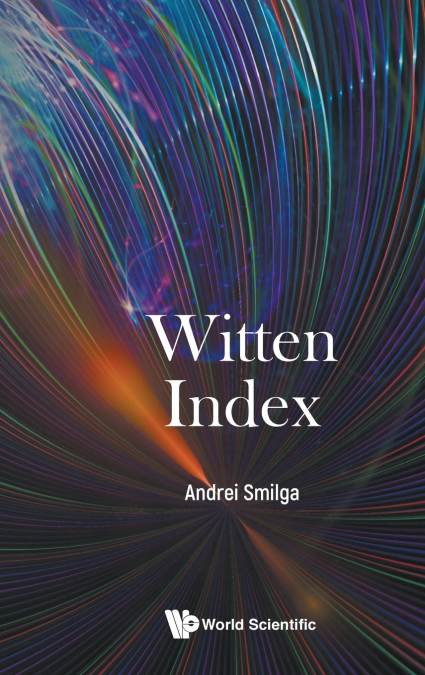
 Librería Perelló (Valencia)
Librería Perelló (Valencia)
 Librería Aciertas (Toledo)
Librería Aciertas (Toledo)
 Librería Elías (Asturias)
Librería Elías (Asturias)
 Donde los libros
Donde los libros
 El AlmaZen del Alquimista (Sevilla)
El AlmaZen del Alquimista (Sevilla)
 Librería Kolima (Madrid)
Librería Kolima (Madrid)
 Librería Proteo (Málaga)
Librería Proteo (Málaga)
The book is devoted to vacuum structure of supersymmetric quantum mechanical and field theories. The Witten Index (the title of book) is a powerful theoretical tool, which allows one to find out whether supersymmetry breaks down spontaneously in a given theory or not. This is the main physical interest of this notion, but the latter has also many beautiful purely mathematical connotations. It represents a variant of the so-called equivariant index introduced by Cartan back in 1950 and is closely related to the Atiyah-Singer index.In his previous book 'Differential Geometry through Supersymmetric Glasses', World Scientific, 2020, the author showed how the supersymmetric language allows one to describe, in a rather transparent way, some known facts of differential geometry and also derive new results in this field.This book is mostly addressed to experts in quantum field theory, but the first three chapters has an introductory textbook nature and can be read by a non-expert. In Chapters 4 and 5, the general aspects of the Witten index are explained and the relationship with pure mathematical problems is elucidated. Chapters 6, 7, 8 are devoted to four-dimensional supersymmetric gauge theories: pure supersymmetric Yang-Mills theories in Chapter 6, the theories including a nonchiral (Chapter 7) and chiral (Chapter 8) matter. Chapter 9 is devoted to the so-called maximal supersymmetric quantum mechanics obtained by a dimensional reduction of the 10-dimensional supersymmetric Yang-Mills theory. In Chapter 10, the numbers of supersymmetric vacua in 3-dimensional supersymmetric Yang-Mills-Chern-Simons theories is calculated. Finally, in Chapter 11, the author discusses some relatives of the Witten index, such as the indices for the 4-dimensional theories compactified on S3 x R, rather than 4-torus or the so-called Cecolli-Fendley-Intriligator-Vafa index.